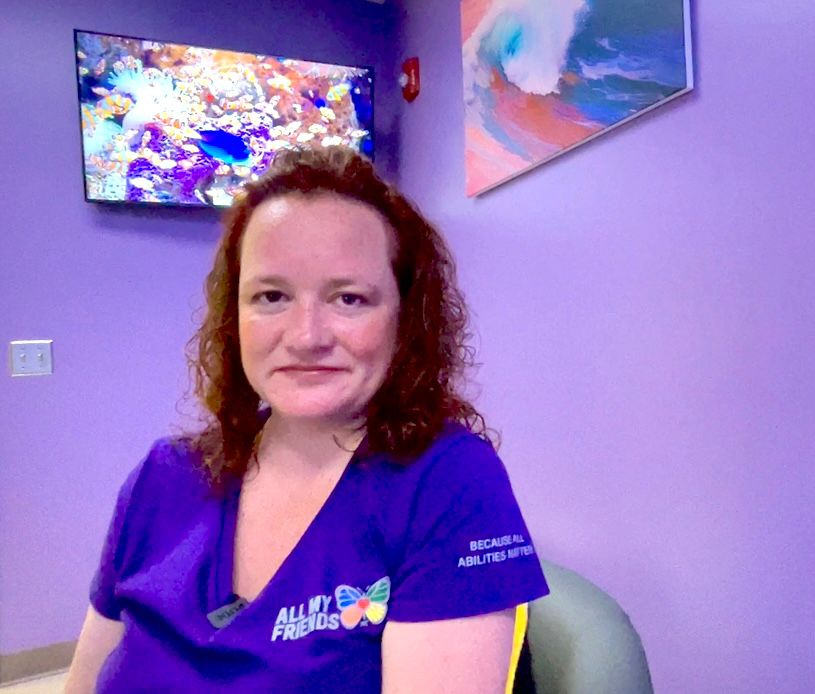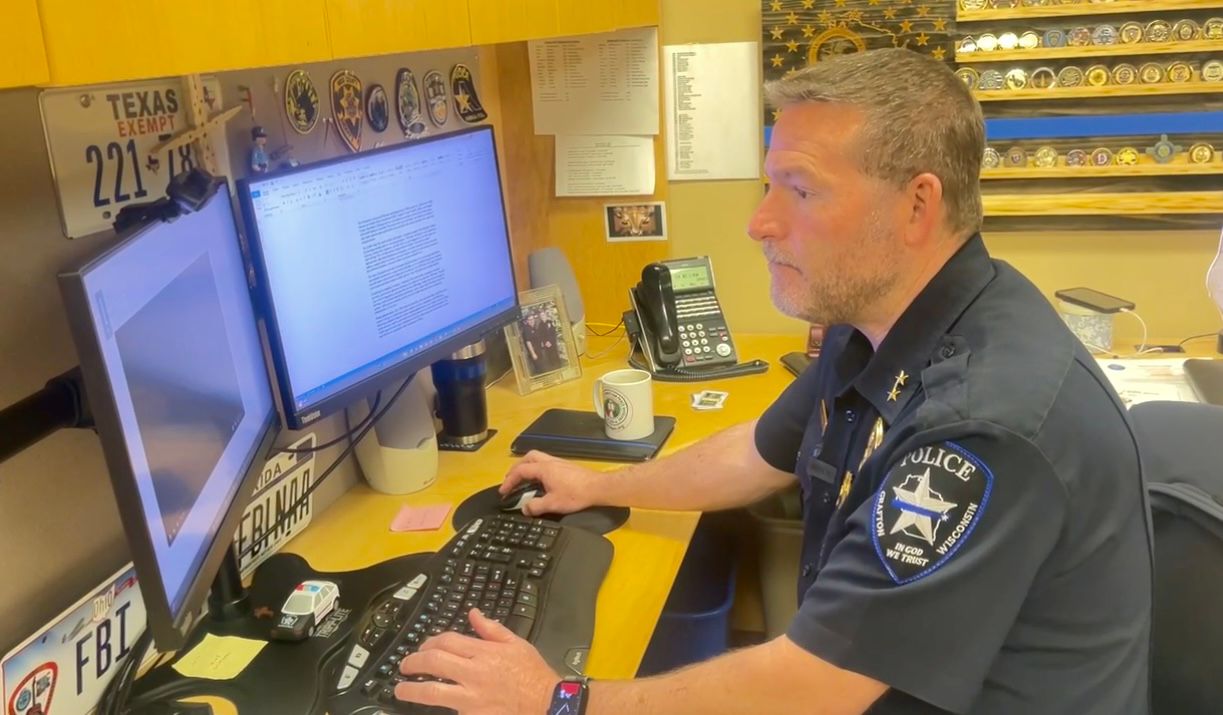GRAFTON, Wis. — The Village of Grafton Police Department is growing its mental health resources. It recently built a sensory room inside the department.
The room is meant to provide a calming space for people with developmental disabilities who may be in distress. The project was funded by the nonprofit All My Friends.

Dianne Helmer, founder of All My Friends, said the project is very close to her heart.
“I have a beautiful daughter, Cassie. Sassy Cassie, we like to nickname her. She does have autism. She’s on the spectrum. She’ll be 24 years old,” said Helmer.
Helmer said the room has specific features that can help calm people with autism or other disabilities, such as images of swimming fish projected on the wall, a bubble machine, weighted blankets and stuffed animals.
“If there is a young adult or child with an intellectual developmental disability, this room is so important because they can bring them back here with the person and immediately start to de-escalate the situation, calm them down and then hopefully be able to actually conduct the interview,” said Helmer.

Village of Grafton Police Chief Jeff Caponera spearheaded the project with Helmer. He said his department is being proactive.
He said a housing complex recently opened in the area that helps autistic adults live independently.
“So, we really wanted to have a place that they could go if we ever had to interview them for being a victim in a crime or a suspect in a crime or just if they have a meltdown and they need a place to come and decompress,” said Caponera.
He said the department also hosted a training program recently called “Autism and the Law Enforcement Response.” He said officers from all over Wisconsin attended.
“It’s important because I want the officers and I to understand and be able to identify somebody who’s in crisis and experiencing an emergency who is on the autism spectrum,” said Caponera.

Caponera said the sensory room is open to anyone, even those who haven’t been diagnosed with autism or another disability.
Helmer said she hopes the room will not only serve as a resource but also encourage inclusion for people with intellectual disabilities.
“Because they are just like everybody else, they just want to be accepted,” she said.



